Monday, April 28, 2008
I bought an open-ended bereavement ticket
The fare is $490 with tax. I was able to apply the ticket I already had and they waived the $100 change fee. I had to give them the funeral home details and my Mom's name.
Here are the rules: American Airlines offers a compassion fare for customers traveling due to a medical emergency or death of a family member not limited to immediate family of the passenger.
Domestic partners are allowed.
This fare also applies to customers traveling due to a medical emergency within their family.
Customers must meet certain qualifications and provide specific information to obtain the compassion fare.AA compassion/bereavement fares must be booked by AA only. Tickets may be issued by travel agents. Tickets must be completed within one day after the reservation is completed and changes to reservations must be made by AA.
Here are the rules: American Airlines offers a compassion fare for customers traveling due to a medical emergency or death of a family member not limited to immediate family of the passenger.
Domestic partners are allowed.
This fare also applies to customers traveling due to a medical emergency within their family.
Customers must meet certain qualifications and provide specific information to obtain the compassion fare.AA compassion/bereavement fares must be booked by AA only. Tickets may be issued by travel agents. Tickets must be completed within one day after the reservation is completed and changes to reservations must be made by AA.
Saturday, April 26, 2008
Remembering Mom

Lorraine Joan Hoskins Scott
May 24, 1915-April 26, 2008
May 24, 1915-April 26, 2008
Lorraine Joan Hoskins Scott, a generous, glamorous, fun-loving, loyal, creative American was born May 24, 1915 in Greenville Mississippi. Her parents were Solomon (b. 1884) and Ella Nora Hoskins (b. 1895). She had a brother Theodore Roosevelt Hoskins, born in 1911, who preceded her in death.
She attended Sacred Heart in Greenville Mississippi, where she was baptized Catholic in 1929.
As a girl she loved to play basketball, entertain her friends, and read.
Lured by the promise of opportunity for a better life in the North, she traveled with the Great Migration to Chicago in her 20s to find work. Always a caretaker, eventually, she sent for her mother, her brother, other family members, and even her best friend, Estelle Bivens. She assisted the newcomers in finding housing and work in her newfound home. She loved Chicago.
Lorraine worked several housekeeping jobs before landing a job at Western Electric, (the manufacturing arm of AT&T) in 1943 at age 28. The job provided steady income, full medical benefits, full pension, and union membership-- a real prize for a young Black girl from the Deep South. After working dutifully for 25 years, in 1968, she retired to be an at-home-Mom.
When she met William Arthur Scott, in 1943, it was love at first sight for both of them. Lifelong soul mates, Lorraine and William married, April 9, 1944 and celebrated 64 years of marriage this year.
Eventually, William joined Lorraine at work at Western Electric, where they commuted daily together for more than two decades.
Although their lives were full and rich, in their comfortable house on Chicago’s South Side, they had an empty space in their hearts. They adopted two baby girls, Stephanie, and Karla in 1962 and enveloped them with love.
Their goal as parents was to provide lots of love, educational opportunities, material comfort, fun, and spiritual guidance They even got pets for the first time in their married lives, so their children could enjoy the experience. Included in their gifts to their children were Catholic schools, Girl Scouts, the 4-H club, ballet lessons, piano lessons, and college.
Her greatest loss was when her daughter, Stephanie Katrina, passed away in 1983.
Lorraine was known as a generous soul who helped countless individuals, numerous charities, and her church, St. Dorothy's.
She was a member of several social organizations including Jolly Cliques, Christian Youth Fellowship, Ladies Guild, Le Players, the Knights of Peter Claver Women’s Auxiliary, and the Avalon Swingers (seniors) Dance Troop. She volunteered annually for La Rabida Children’s hospital for many years.
Always full of energy, she loved line dancing, and danced regularly with senior citizens dance groups, throughout Chicago up until she suffered a stroke in 2005. She was even featured on local television networks, performing with her dance group, The Avalon Swingers. When interviewed by broadcast journalists, she expressed her joy for living.
Lorraine traveled extensively in the US and to Greece, China, Israel, the Caribbean, and the Mediterranean.
She is survived by her husband William Arthur Scott (b. 1913) and her daughter Karla Joy Scott.
Also, she has a niece, Laverne Hadley, two grand nephews, Craig and Doug Anderson, and a grandniece, Lisa Anderson Hawkins.
Her closest friends are Estelle Bivens Buser and Juanita. Estelle Bivens Buser has been a lifelong friend. She and Juanita Blakey were like sisters to Lorraine.
Lorraine had a positive impact on the lives of everyone she touched. She will always be remembered as colorful, generous, stylish, loving and warm.
A note to our pastor
Dear Father Bob
I just received the phone call I have dreaded: My Mom, Lorraine Scott, passed away in her sleep.
I am numb now. I will speak with you soon.
Reflections--minutes later:
I wasnt certain how I would feel when I received the phone call. Now, I know: I just feel numb.
I just received the phone call I have dreaded: My Mom, Lorraine Scott, passed away in her sleep.
I am numb now. I will speak with you soon.
Reflections--minutes later:
I wasnt certain how I would feel when I received the phone call. Now, I know: I just feel numb.
Wednesday, April 23, 2008
Barack Obama Learns Abour Home Care Work
Barack Obama spent a day with a home health care worker in order to gain insight into her career and issues where he can help. He cooked, mopped, did laundry, made beds and served meals to her 85-year old client.
See video:
http://www.youtube.com/watch?v=miUS7WnMgBw
See video:
http://www.youtube.com/watch?v=miUS7WnMgBw
Tuesday, April 15, 2008
Article on Boomers Flooding Medical System
Published: 4/14/08, 6:29 PM EDTBy RANDOLPH E. SCHMID
A recent study describes how millions of baby boomers are about to enter a health care system for seniors that not only isn't ready for them, but may even discourage them from getting quality care.
"We face an impending crisis as the growing number of older patients, who are living longer with more complex health needs, increasingly outpaces the number of health care providers with the knowledge and skills to care for them capably," said John W. Rowe, professor of health policy and management at Columbia University.
Rowe headed an Institute of Medicine committee that released a report Monday on the health care outlook for the 78 million baby boomers about to begin turning 65.
The report from the institute, an arm of the National Academy of Sciences, said:
_There aren't enough specialists in geriatric medicine.
_Insufficient training is available.
_The specialists that do exist are underpaid.
_Medicare fails to provide for team care that many elderly patients need.
The study said Medicare may even hinder seniors from getting the best care because of its low reimbursement rates, a focus on treating short-term health problems rather than managing chronic conditions and lack of coverage for preventive services or for health care providers' time spent collaborating with a patient's other providers.
The American Medical Association responded that seniors' access to Medicare in coming years "is threatened by looming Medicare physician payment cuts."
"This July, the government will begin steep cuts in Medicare physician payments, and 60 percent of physicians say this cut will force them to limit the number of new Medicare patients they can treat," the AMA said in a statement.
AARP, the organization for older Americans, said the report highlights the growing need for immediate action to improve and strengthen the health care and long-term care work force.
"We know the problem, and we know how to begin to fix it," said AARP President-Elect Jennie Chin Hansen.
The group said it is endorsing a bill by Sens. Senators Barbara Boxer, D-Calif. and Susan Collins, R-Maine, intended to steer caregivers towards geriatric and long-term care roles, and create an advisory panel to analyze this critical sector and make recommendations to tackle its changing needs.
The report found there are about 7,100 doctors certified in geriatrics in the United States, one per every 2,500 older Americans.
Turnover among nurse aides averages 71 percent annually, and up to 90 percent of home health aides leave their jobs within the first two years, the report said.
But while today's elderly tend to be healthier and live longer than previous generations, people over 65 to have more complex conditions and health care needs than younger folks.
The report urged that all health care workers be trained in basic geriatric care and that schools increase training in the treatment of older patients.
The federally required minimum number of hours of training for direct-care workers should be raised from 75 to at least 120, the report said, noting that more training is required for dog groomers and manicurists than direct-care workers in many parts of the country.
And it said pay for geriatric specialists, doctors, nurses and care workers needs to be increased.
A doctor specializing in elderly care earned $163,000 on average in 2005 compared with $175,000 for a general internist, even though the geriatric specialist required more training.
The report also urged training for family members and other informal caregivers who assist the elderly.
The study was sponsored by the John A. Hartford Foundation, Atlantic Philanthropies, Josiah Macy Jr. Foundation, Robert Wood Johnson Foundation, Retirement Research Foundation, California Endowment, Archstone Foundation, AARP, Fan Fox and Leslie R. Samuels Foundation and Commonwealth Fund.
The National Academy of Sciences is an independent organization chartered by Congress to advise the government on scientific matters.
A recent study describes how millions of baby boomers are about to enter a health care system for seniors that not only isn't ready for them, but may even discourage them from getting quality care.
"We face an impending crisis as the growing number of older patients, who are living longer with more complex health needs, increasingly outpaces the number of health care providers with the knowledge and skills to care for them capably," said John W. Rowe, professor of health policy and management at Columbia University.
Rowe headed an Institute of Medicine committee that released a report Monday on the health care outlook for the 78 million baby boomers about to begin turning 65.
The report from the institute, an arm of the National Academy of Sciences, said:
_There aren't enough specialists in geriatric medicine.
_Insufficient training is available.
_The specialists that do exist are underpaid.
_Medicare fails to provide for team care that many elderly patients need.
The study said Medicare may even hinder seniors from getting the best care because of its low reimbursement rates, a focus on treating short-term health problems rather than managing chronic conditions and lack of coverage for preventive services or for health care providers' time spent collaborating with a patient's other providers.
The American Medical Association responded that seniors' access to Medicare in coming years "is threatened by looming Medicare physician payment cuts."
"This July, the government will begin steep cuts in Medicare physician payments, and 60 percent of physicians say this cut will force them to limit the number of new Medicare patients they can treat," the AMA said in a statement.
AARP, the organization for older Americans, said the report highlights the growing need for immediate action to improve and strengthen the health care and long-term care work force.
"We know the problem, and we know how to begin to fix it," said AARP President-Elect Jennie Chin Hansen.
The group said it is endorsing a bill by Sens. Senators Barbara Boxer, D-Calif. and Susan Collins, R-Maine, intended to steer caregivers towards geriatric and long-term care roles, and create an advisory panel to analyze this critical sector and make recommendations to tackle its changing needs.
The report found there are about 7,100 doctors certified in geriatrics in the United States, one per every 2,500 older Americans.
Turnover among nurse aides averages 71 percent annually, and up to 90 percent of home health aides leave their jobs within the first two years, the report said.
But while today's elderly tend to be healthier and live longer than previous generations, people over 65 to have more complex conditions and health care needs than younger folks.
The report urged that all health care workers be trained in basic geriatric care and that schools increase training in the treatment of older patients.
The federally required minimum number of hours of training for direct-care workers should be raised from 75 to at least 120, the report said, noting that more training is required for dog groomers and manicurists than direct-care workers in many parts of the country.
And it said pay for geriatric specialists, doctors, nurses and care workers needs to be increased.
A doctor specializing in elderly care earned $163,000 on average in 2005 compared with $175,000 for a general internist, even though the geriatric specialist required more training.
The report also urged training for family members and other informal caregivers who assist the elderly.
The study was sponsored by the John A. Hartford Foundation, Atlantic Philanthropies, Josiah Macy Jr. Foundation, Robert Wood Johnson Foundation, Retirement Research Foundation, California Endowment, Archstone Foundation, AARP, Fan Fox and Leslie R. Samuels Foundation and Commonwealth Fund.
The National Academy of Sciences is an independent organization chartered by Congress to advise the government on scientific matters.
Monday, April 14, 2008
Caregiver Depression, a National Crisis
One of today's all too silent crises is caregiver depression. It is reported that 20% of family caregivers suffer depression, which represents twice the rate of the general population. Almost 60%. Of the clients of the California Caregiver Resource Centers show clinical signs of depression.
What's more, they have found that former caregivers may not escape the prison of this condition-even after their caregiving duties end. A recent study revealed that 41% of former caregivers of a spouse with Alzheimer's disease or a no other form of dementia experienced mild to severe depression up to three years after their spouse had died.
In general, women caregivers experience depression at a higher rate than men
It is known that in an effort to provide the best possible care for a family member or friend, caregivers often sacrifice their own physical and emotional needs, and the emotional and physical experiences involved with providing care can place a severe strain on even the most capable person. Feelings of anger, anxiety, sadness, isolation, and exhaustion can exact a heavy toll.
I am always surprised to read how common the feelings of guilt are among caregivers.
Symptoms of Depression.
--A change in eating habits and/or unwanted weight gain or loss.
--A change in sleep patterns.--Too much sleep or not enough.
--Feeling tired all the time.
--Losing interest in people and/or activities.
--Easily agitated or anger.
--Feeling that nothing you do is good enough.
--Thoughts of death or suicide.
--Ongoing physical symptoms that do not respond to treatment, such as headaches, digestive disorders and chronic pain.
Recommendations on Treatment for Caregiver Depression from the National Institute of Mental Health:
--Set realistic goals.
-- Break large tasks into small ones.
--Try to be with other people and confide in someone.
--Participate in activities that may make you feel better; exercise, movies, sporting events, nature activities, attending a religious, social or community event.
--Expect your mood to improve gradually, not immediately. Feeling better takes time.
--Postpone important decisions until depression has lifted
For your health and the health of those around you, take some time to care for yourself-- seek a mental health professional, use respite care relief, use positive self talk, and stay active. All these can help to improve your sense of well-being.
Good luck! –
What's more, they have found that former caregivers may not escape the prison of this condition-even after their caregiving duties end. A recent study revealed that 41% of former caregivers of a spouse with Alzheimer's disease or a no other form of dementia experienced mild to severe depression up to three years after their spouse had died.
In general, women caregivers experience depression at a higher rate than men
It is known that in an effort to provide the best possible care for a family member or friend, caregivers often sacrifice their own physical and emotional needs, and the emotional and physical experiences involved with providing care can place a severe strain on even the most capable person. Feelings of anger, anxiety, sadness, isolation, and exhaustion can exact a heavy toll.
I am always surprised to read how common the feelings of guilt are among caregivers.
Symptoms of Depression.
--A change in eating habits and/or unwanted weight gain or loss.
--A change in sleep patterns.--Too much sleep or not enough.
--Feeling tired all the time.
--Losing interest in people and/or activities.
--Easily agitated or anger.
--Feeling that nothing you do is good enough.
--Thoughts of death or suicide.
--Ongoing physical symptoms that do not respond to treatment, such as headaches, digestive disorders and chronic pain.
Recommendations on Treatment for Caregiver Depression from the National Institute of Mental Health:
--Set realistic goals.
-- Break large tasks into small ones.
--Try to be with other people and confide in someone.
--Participate in activities that may make you feel better; exercise, movies, sporting events, nature activities, attending a religious, social or community event.
--Expect your mood to improve gradually, not immediately. Feeling better takes time.
--Postpone important decisions until depression has lifted
For your health and the health of those around you, take some time to care for yourself-- seek a mental health professional, use respite care relief, use positive self talk, and stay active. All these can help to improve your sense of well-being.
Good luck! –
Dateline Exposes Predatory Senior Insurance Scams
Dateline NBC just aired a show where they went undercover to investigate unscrupulous business practices in sale of retirement investments. Their target: vulnerable, trusting senior citizens with nest eggs and fear of financial insecurity.
The show revealed insurance agents attending "boot camps" where they learn How to Manipulate and Mislead Seniors 101". There, certified insurance sales agents are being taught questionable tools of the trade.
As I watched the show, I recall an episode, a few years ago where my Mom had to involve her bank to free herself from such a "scam" she had been swindled into from a former bank employee, whom she trusted.
The model for success includes securing potential clients’ trust by pretending to bond with them over a free meal. Obviously, they understand how compelling a free meal is to seniors. On the show, the agent advertised a free steak dinner and attracted a sizable crowd, a captive audience of prey. They repeatedly insist they are not there to sell, yet, their entire behavior is predatory and aggressive.
Their first step is to trigger clients' fear and ignorance of banking safety, interest, the IRS, fear of nursing home and Medicaid seizure of assets, and hefty medical expenses. They even convince them The FDIC is an unsafe and uncertain institution that will not protect their funds. Experts revealed no one has ever lost FDIC protected funds. Then, they casually offer a pot pourri of "risk free" products guaranteed to grow in value. They showed us a training manual in which the trainer tells agents to sell to seniors by assuming they're “selling to a 12-year-old" and by hitting their “fear, anger or greed buttons."
Many of these agents are selling a relatively new kind of investment: the "equity indexed annuity.” It’s a legitimate investment for some people, and sales have soared because insurance companies market them as a safe place to invest. They're called "indexed" because they're tied to the stock market such that they grow if stocks rise. They claim the best part is if stocks go down, the insurance company guarantees you won't lose.
What they don’t tell you is this instrument ties up a large chunk of the clients next egg for 10 to 15 years, not good when life expectancy is 78. Also, there are stiff penalties of 15-20% for early with drawl. Importantly, the agents hide the early withdrawal penalty feature during their sales pitch. They avoid adressing the question by changing the subject and offering additional products.
In the meantime, the agents earn attractive commissions on the sale of these products.
The show featured several hidden camera interactions between seller and senior prey (typically in their 70s) in their homes. In each case, the predators mislead potential clients. In one case, once the journalist revealed the hidden cameras, the agent cursed him for not warning him about hidden cameras.
Fortunately, many states attorney generals are investigating these cases of manipulative, deceitful practices against the elderly and there are multi-state task forces investigating the possibility of fraud in the sale of retirement investments to seniors. In many cases, the insurance carriers are forced to pay refunds plus interest. Other lawsuits are pending against such insurance companies nationwide.
The show revealed insurance agents attending "boot camps" where they learn How to Manipulate and Mislead Seniors 101". There, certified insurance sales agents are being taught questionable tools of the trade.
As I watched the show, I recall an episode, a few years ago where my Mom had to involve her bank to free herself from such a "scam" she had been swindled into from a former bank employee, whom she trusted.
The model for success includes securing potential clients’ trust by pretending to bond with them over a free meal. Obviously, they understand how compelling a free meal is to seniors. On the show, the agent advertised a free steak dinner and attracted a sizable crowd, a captive audience of prey. They repeatedly insist they are not there to sell, yet, their entire behavior is predatory and aggressive.
Their first step is to trigger clients' fear and ignorance of banking safety, interest, the IRS, fear of nursing home and Medicaid seizure of assets, and hefty medical expenses. They even convince them The FDIC is an unsafe and uncertain institution that will not protect their funds. Experts revealed no one has ever lost FDIC protected funds. Then, they casually offer a pot pourri of "risk free" products guaranteed to grow in value. They showed us a training manual in which the trainer tells agents to sell to seniors by assuming they're “selling to a 12-year-old" and by hitting their “fear, anger or greed buttons."
Many of these agents are selling a relatively new kind of investment: the "equity indexed annuity.” It’s a legitimate investment for some people, and sales have soared because insurance companies market them as a safe place to invest. They're called "indexed" because they're tied to the stock market such that they grow if stocks rise. They claim the best part is if stocks go down, the insurance company guarantees you won't lose.
What they don’t tell you is this instrument ties up a large chunk of the clients next egg for 10 to 15 years, not good when life expectancy is 78. Also, there are stiff penalties of 15-20% for early with drawl. Importantly, the agents hide the early withdrawal penalty feature during their sales pitch. They avoid adressing the question by changing the subject and offering additional products.
In the meantime, the agents earn attractive commissions on the sale of these products.
The show featured several hidden camera interactions between seller and senior prey (typically in their 70s) in their homes. In each case, the predators mislead potential clients. In one case, once the journalist revealed the hidden cameras, the agent cursed him for not warning him about hidden cameras.
Fortunately, many states attorney generals are investigating these cases of manipulative, deceitful practices against the elderly and there are multi-state task forces investigating the possibility of fraud in the sale of retirement investments to seniors. In many cases, the insurance carriers are forced to pay refunds plus interest. Other lawsuits are pending against such insurance companies nationwide.
Wednesday, April 9, 2008
Monday, April 7, 2008
Warning Signs of Driving Problems
What are the warning signs that a person with dementia should stop driving?A single occurrence of poor driving usually is not cause for a person to stop driving. It does, however, signal the need for increased monitoring and assessment.
Warning signs of driving problems include:
Decrease in confidence while driving
Difficulty turning to see when backing up
Riding the brake
Easily distracted while driving
Other drivers often honk horns
Incorrect signaling
Difficulty parking within a defined space
Hitting curbs
Scrapes or dents on the car, mailbox or garage
Increased agitation or irritation when driving
Failure to notice activity on the side of the road
Failure to notice traffic signs
Trouble navigating turns
Driving at inappropriate speeds
Not anticipating potential dangerous situations
Uses a "copilot"
Bad judgment on making left hand turns
Near misses
Delayed response to unexpected situations
Moving into wrong lane
Difficulty maintaining lane position
Confusion at exits
Ticketed moving violations or warnings
Getting lost in familiar places
Car accident
Failure to stop at stop sign or red light
Confusing the gas and brake pedals
Stopping in traffic for no apparent reason
Families need to consider the circumstances and seriousness of unsafe driving practices to decide whether to continue monitoring, modify driving or stop driving immediately.
see previous post for free online guide to help balance safety with independance.
Warning signs of driving problems include:
Decrease in confidence while driving
Difficulty turning to see when backing up
Riding the brake
Easily distracted while driving
Other drivers often honk horns
Incorrect signaling
Difficulty parking within a defined space
Hitting curbs
Scrapes or dents on the car, mailbox or garage
Increased agitation or irritation when driving
Failure to notice activity on the side of the road
Failure to notice traffic signs
Trouble navigating turns
Driving at inappropriate speeds
Not anticipating potential dangerous situations
Uses a "copilot"
Bad judgment on making left hand turns
Near misses
Delayed response to unexpected situations
Moving into wrong lane
Difficulty maintaining lane position
Confusion at exits
Ticketed moving violations or warnings
Getting lost in familiar places
Car accident
Failure to stop at stop sign or red light
Confusing the gas and brake pedals
Stopping in traffic for no apparent reason
Families need to consider the circumstances and seriousness of unsafe driving practices to decide whether to continue monitoring, modify driving or stop driving immediately.
see previous post for free online guide to help balance safety with independance.
Elder Driving Cessation-Free Online Guide
Easing the Transition from Driver to Passenger is a guide, published on line by The Hartford, to helping individuals with Alzheimer’s reduce the need to drive. See: http://www.thehartford.com/alzheimers/easing_transition.html
Here are suggestions from The Hartford on balancing independence with safety:
For Drivers with Dementia:
The following tips can help people with dementia ease the transition from driver to passenger:
-Confide in a friend or family member about what driving means to you. Help them understand what you have to give up when you stop driving.
-Work with your family to create a transportation plan that meets your needs.
-Consider the Agreement with My Family about Driving (available on The Hartford website http://www.thehartford.com/alzheimers/agreement.html) as a way to balance your independence with safety.
-Volunteer to be a passenger. Allow others to do the driving.
For Caregivers:
The following tips can help caregivers who are struggling to decide when to limit or stop driving privileges for a person with dementia:
Here are suggestions from The Hartford on balancing independence with safety:
For Drivers with Dementia:
The following tips can help people with dementia ease the transition from driver to passenger:
-Confide in a friend or family member about what driving means to you. Help them understand what you have to give up when you stop driving.
-Work with your family to create a transportation plan that meets your needs.
-Consider the Agreement with My Family about Driving (available on The Hartford website http://www.thehartford.com/alzheimers/agreement.html) as a way to balance your independence with safety.
-Volunteer to be a passenger. Allow others to do the driving.
For Caregivers:
The following tips can help caregivers who are struggling to decide when to limit or stop driving privileges for a person with dementia:
-Imagine for a moment your own life without driving. Allow your relative with dementia to express how he or she feels about not driving.
-Initiate conversations about driving and transportation needs early and often.
-Observe the person with mild dementia when driving.
-Keep a written record of observable driving behavior over time.
-Share observations of unsafe driving with the person with dementia, other family members and healthcare providers.
-Create opportunities for you or others to drive the person with dementia.
-Ask professionals outside the family to raise questions about driving safety.
-Get information about driving evaluation services in your state or region.
Thursday, April 3, 2008
AARP Caregiver Online Support Group
After watching last night’s informative and moving PBS special on Caring for Parents, I joined the AARP online discussion forum.
Here is one conversation:
I watched the PBS special last night with my husband, and it certainly struck a chord. My Mom and Dad moved up to be near us 4 years ago, but we were both totally unprepared for the emotional challenges. Dad passed away last year, and Mom is still living alone near us. While I feel blessed that we are in a position to care for her, it is so difficult to watch her diminish. There is no durable power of attorney, no living will, no health care proxy. She refuses to go to the doctor (although I was successful to at least get to talk to the doctor) so unsure as to what level of dementia or what the source is, but it is clear that she is losing brain function. We think it may be a series of small strokes. I lover her, and just want her to be happy, but it is often like walking in a mine field as I try to get things done. Anyway, I digress. There is a caregiver group near us, but my work schedule and my time spent caring for Mom have prevented me from going as much as I need. I am hoping this forum will help to alleviate some of the loneliness and desparation I sometimes feel. Well, that certainly sounds desparate enough.
My reply:
Dear Fellow Caregiver
I found many parts of the PBS special to be moving. They touched on most of the major issues associated with caring for parents including financial; sibling rivalry; parental resistance; the pain and denial in watching parents decline; Alzheimer’s difficulties navigating health care; grieving losses; strained marriages; female caregiver overload (primary caregivers, full time employees, teens at home, housekeeping, husband, meal preparation, in-law caregiving etc) , anger and resentment etc. They also touched on the joy of doing the right thing---even with those who had less than perfect relationships with their parent (s).
I am a solo long distance caregiver for my invalid parents for 3 years now.
Go to your local Area on Aging Agency and consult all consult your state and city’s department on aging/senior services. It is time consuming but it will pay off if you leave no stone unturned.
I wish you all the best.
Karla
Here is one conversation:
I watched the PBS special last night with my husband, and it certainly struck a chord. My Mom and Dad moved up to be near us 4 years ago, but we were both totally unprepared for the emotional challenges. Dad passed away last year, and Mom is still living alone near us. While I feel blessed that we are in a position to care for her, it is so difficult to watch her diminish. There is no durable power of attorney, no living will, no health care proxy. She refuses to go to the doctor (although I was successful to at least get to talk to the doctor) so unsure as to what level of dementia or what the source is, but it is clear that she is losing brain function. We think it may be a series of small strokes. I lover her, and just want her to be happy, but it is often like walking in a mine field as I try to get things done. Anyway, I digress. There is a caregiver group near us, but my work schedule and my time spent caring for Mom have prevented me from going as much as I need. I am hoping this forum will help to alleviate some of the loneliness and desparation I sometimes feel. Well, that certainly sounds desparate enough.
My reply:
Dear Fellow Caregiver
I found many parts of the PBS special to be moving. They touched on most of the major issues associated with caring for parents including financial; sibling rivalry; parental resistance; the pain and denial in watching parents decline; Alzheimer’s difficulties navigating health care; grieving losses; strained marriages; female caregiver overload (primary caregivers, full time employees, teens at home, housekeeping, husband, meal preparation, in-law caregiving etc) , anger and resentment etc. They also touched on the joy of doing the right thing---even with those who had less than perfect relationships with their parent (s).
I am a solo long distance caregiver for my invalid parents for 3 years now.
Go to your local Area on Aging Agency and consult all consult your state and city’s department on aging/senior services. It is time consuming but it will pay off if you leave no stone unturned.
I wish you all the best.
Karla
Wednesday, April 2, 2008
Tele-Support Groups Are Now Available
The Chicago Department of Senior Services has joined forces with the Salvation Army to offer tele-support groups for caregivers. Caregivers can call in twice a month and share their experiences, frustrations, and knowledge with each other
Research has shown that sharing feelings with others who were in a similar situation can reduce stress, increase self-esteem, and improve relationships with others. That is why support groups can be so valuable.
In order to participate in the tele-support groups, which are available the first and third Wednesday of every month from 7 p.m. to 8 p.m. CST take the following steps:
Step 1: dial 1 -- 866 -- 212 -- 0875.
Step 2: enter pass code: 932974#
Step 3: share your name with the group
Research has shown that sharing feelings with others who were in a similar situation can reduce stress, increase self-esteem, and improve relationships with others. That is why support groups can be so valuable.
In order to participate in the tele-support groups, which are available the first and third Wednesday of every month from 7 p.m. to 8 p.m. CST take the following steps:
Step 1: dial 1 -- 866 -- 212 -- 0875.
Step 2: enter pass code: 932974#
Step 3: share your name with the group
Subscribe to:
Comments (Atom)



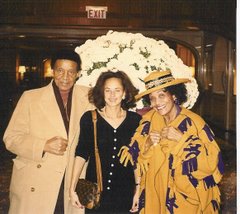
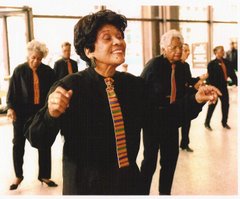
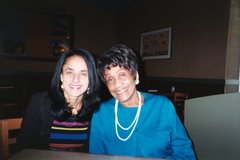
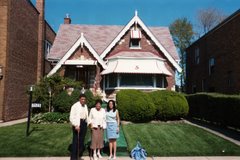
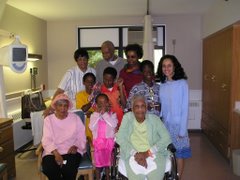

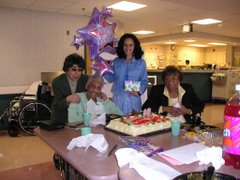
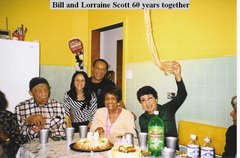
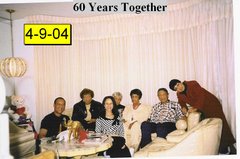
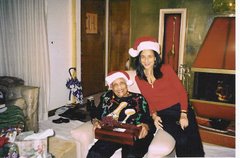
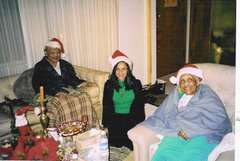
.jpg)